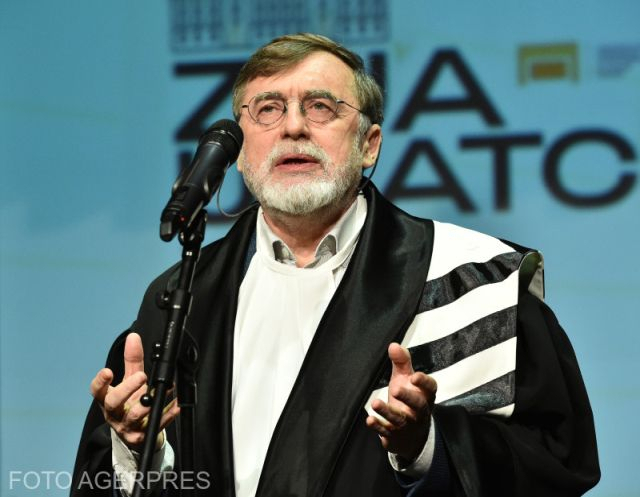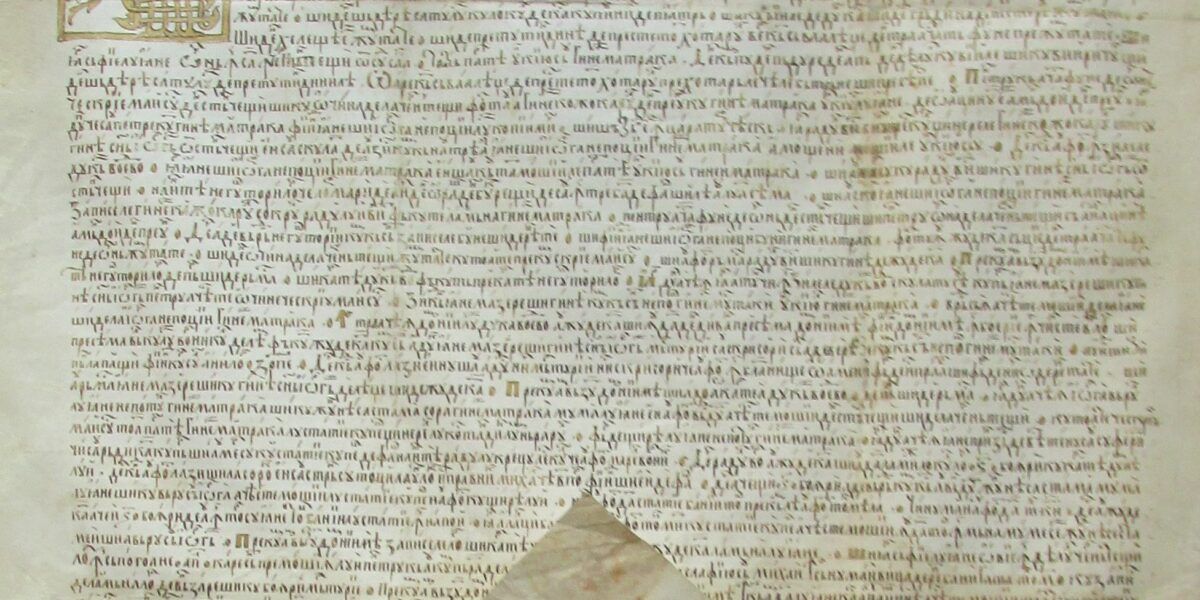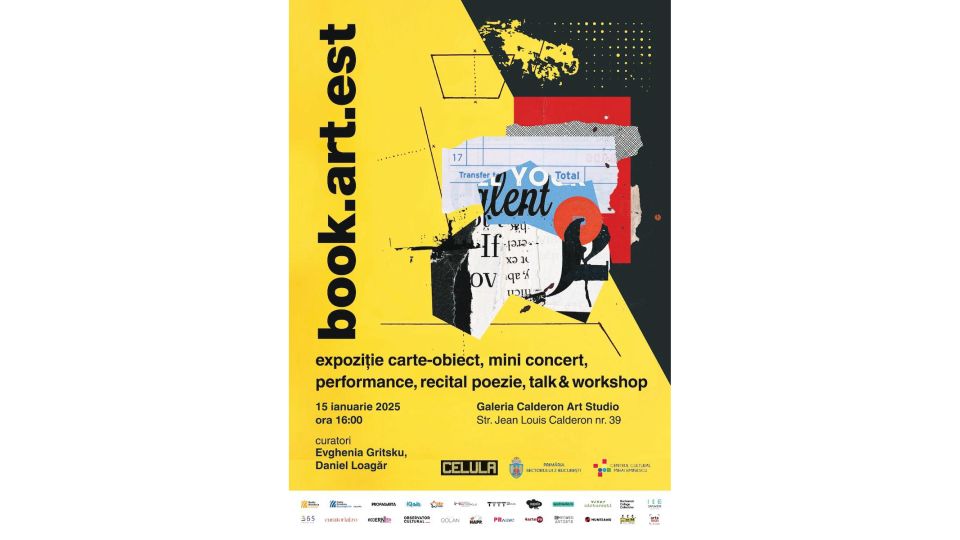Writer Matei Vișniec
Bucharests theatre and film academy awards Doctor Honoris Causa to playwright Matei Vișniec

Corina Sabău, 15.07.2023, 14:00
Romanias most successful contemporary playwright, Matei Vișniec, was awarded Doctor Honoris Causa at a festivity to celebrate the 73rd anniversary of Bucharests National University for Theater and Film. Previously, in 2018, he had been awarded the title of Officer of Arts and Letters in France. On receiving the honorary degree, Vișniec spoke about the prospects of independent artists and the need for a national strategy to help the independent artistic sector. He also paid tribute to theater critic George Banu, who passed away this year. Last but not least, Vișniec spoke about his relationship with the two countries where he has lived and worked, Romania and France.
A poet, playwright, novelist and journalist, Matei Vişniec was born on 29th January 1956 in Rădăuţi, in northern Romania. His first published work was poetry, which appeared in Luceafărul magazine in 1972. He went on to produce seven books of poetry, seven novels, a book of short stories and more than 50 plays. He has been living in France in 1987, where he works as a journalist for Radio France Internationale. After the fall of communism in Romania in 1989, Vişniec started travelling frequently between France and Romania, living between two cultures and two languages, between East and West. His plays have been translated into more than 30 languages and have been staged in more than 30 different countries. Hes even made it into the Dictionnaire des étrangers qui ont fait la France, a biographical dictionary of foreigners who made France. Heres what he had to say about this recognition:
“This dictionary is very interesting in that it shows the extent to which France can be seen as an area of cultural openness and as a great cultural power. It contains around 14,000 names, from the time of the French Revolution until today, so from 1793 until the present day. Its about the foreigners who came to France and made their contribution to its culture. Naturally, the Romanians played an extremely important role in this respect. They started arriving in France towards the end of the 19th century and made a name for themselves in various fields. Id like to recall one of these people, a name all but forgotten today. He was an actor who came from Iași, went to theater school and then became a great star of silent films and the review theater. His stage name was Edourd de Max. Another Romanian mentioned in the dictionary is the late theatre critic George Banu. He is considered a French theatrologist of Romanian origin because he wrote almost all of his work in French, although he did translate and publish it in Romanian, as well. The dictionary shows how significant the Romanian contribution was and Im happy to be included in this volume, having written around 30 plays in French, some of which were published by big publishing houses such as Actes Sud. My plays were staged hundreds of times by French independent theater companies and in the last 30 years, at least one production based on my plays has been selected for the Theater Festival in Avignon. At the same time, I have tried to create bridges, connections, between France and Romania, to give some of the things I see in France as a model for Romanians to get inspired from. For me, France was an opportunity. France gave me wings, and thats very important, but I never lost my roots. For it is in Romania that I grew as a young person, my artistic sensibility is that of a Romanian and East European writer, and as for poetry, I can only experience it profoundly in the Romanian language.
In 2016, Suceava opened a theater that bears the name of the great playwright. Here is Matei Visniec:
“I think it is the most recently created theater in Romania, using the local budget. Before this theater was created, seven years ago, there was a theater festival I created together with very enthusiastic people in Suceava. I created this festival 11 years ago, together with poet Carmen Veronica Steiciuc, who, unfortunately, is no longer with us, and also with the Rotary Club, and the Bucovina Association, with great quality people, very enthusiastic. With this festival, we managed to attract the local audience to the venue. They came for free, but very important shows, from all over the country, it was a large audience. This festival proved that Suceava needed a professional art theater, with actors who felt the pulse of the city and the local need for culture, actors who became local celebrities. Fortunately, now this theater exists. It is extraordinary that the ten actors who live and work in Suceava, at the Matei Visniec Municipal Theater, have put on at least four plays this year. At this moment, as I said, the theater has initiated several major projects.
In late March, the Caragiale National Theater in Bucharest is hosting a new show written by Matei Visniec called The Word Progress Uttered by Mother Sounds Terribly Phony. It is directed by Botond Nagy, one of the directors that has put on several plays based on Matei Visniec’s work at the theater that bears his name. One of them, The Return Home, a show about war and the absurdity of useless loss of life, produced by the Matei Visniec Theater in Suceava, was shortlisted for the National Theater Festival in 2022.






























